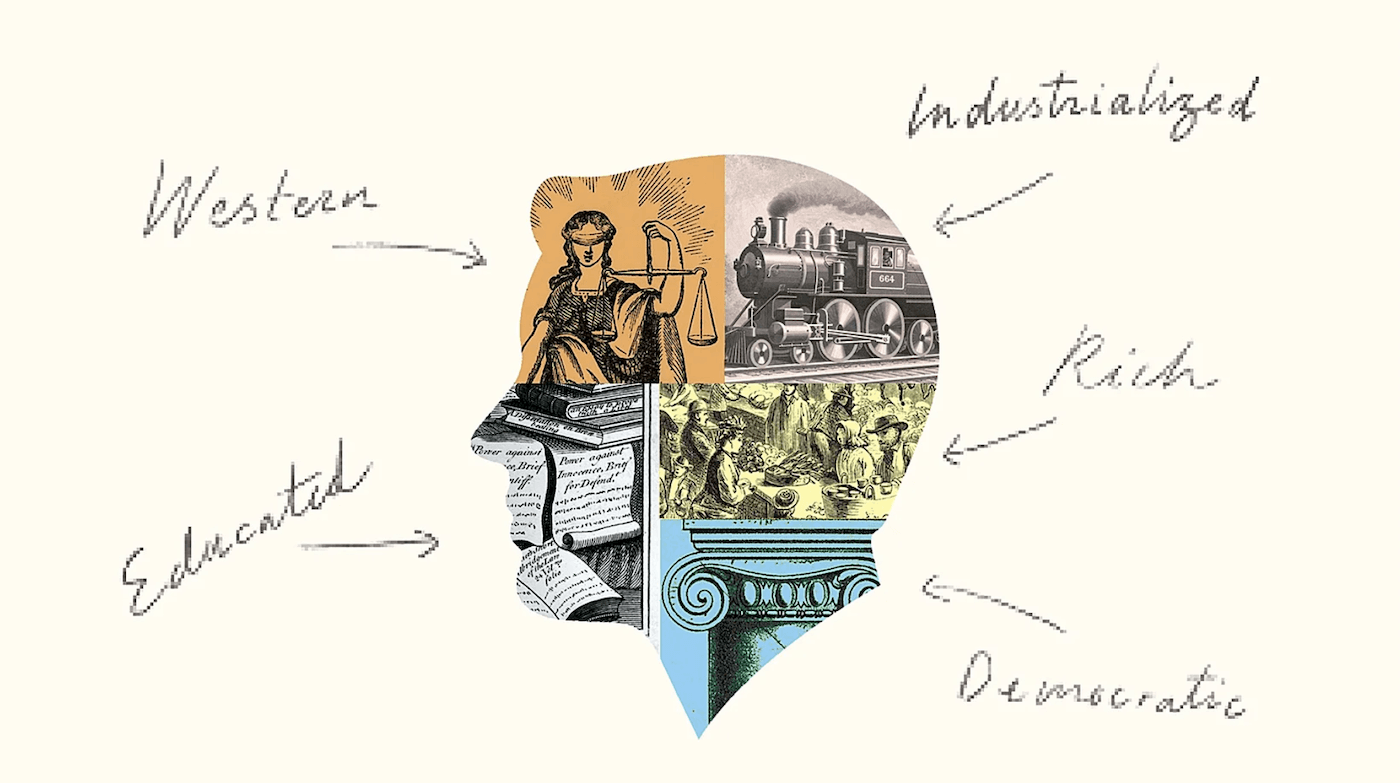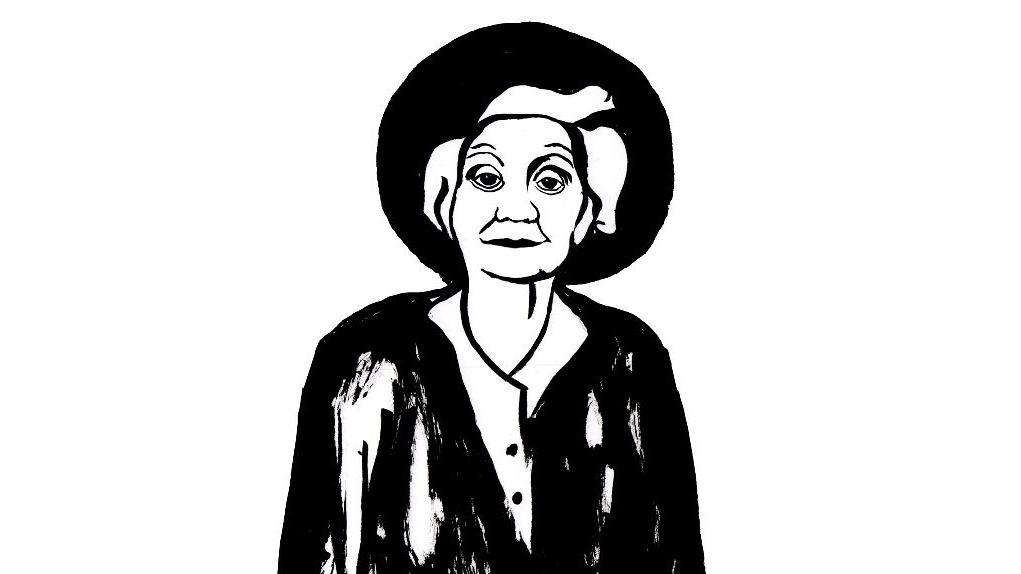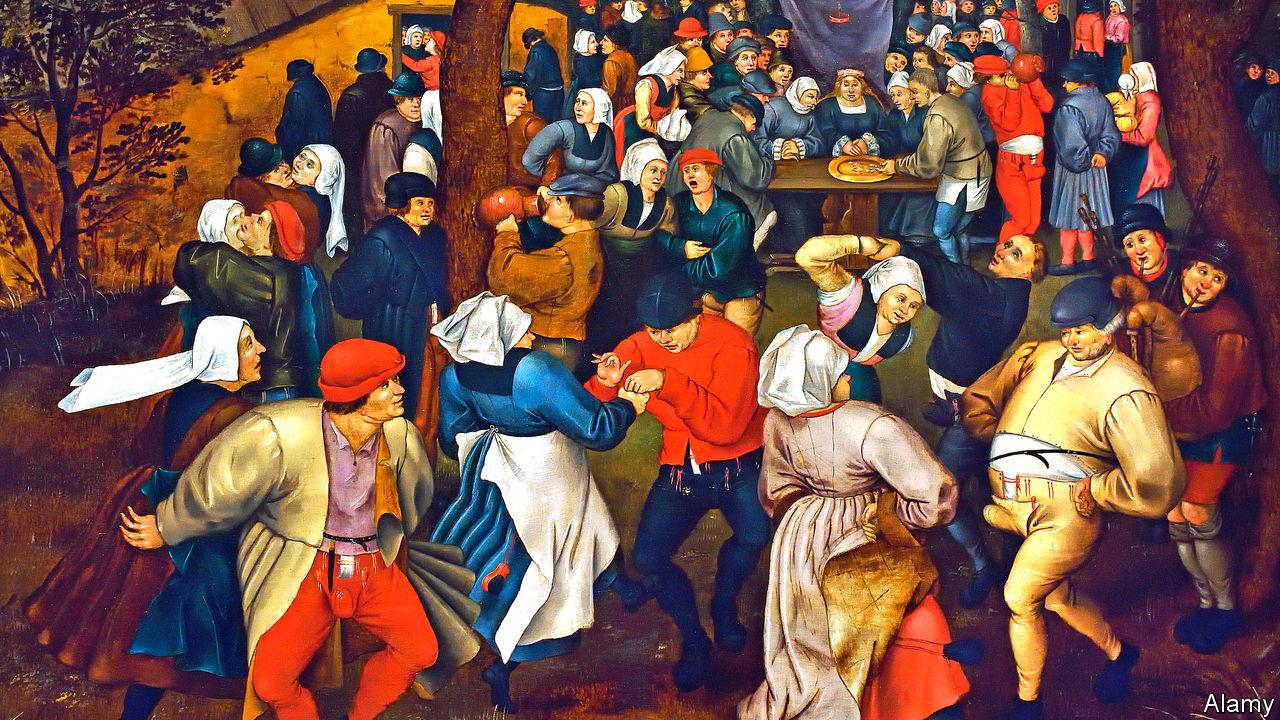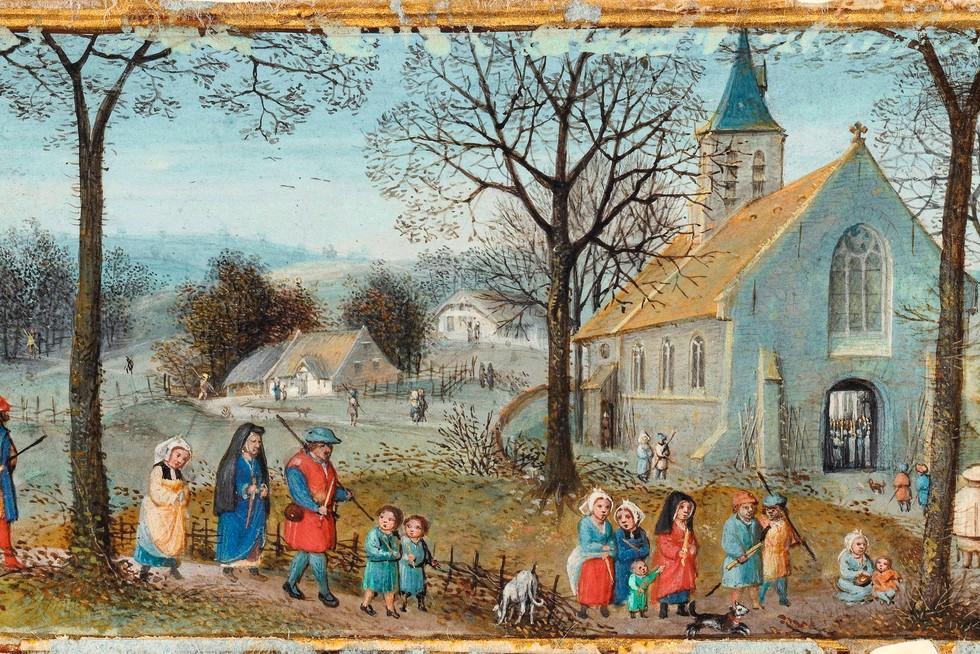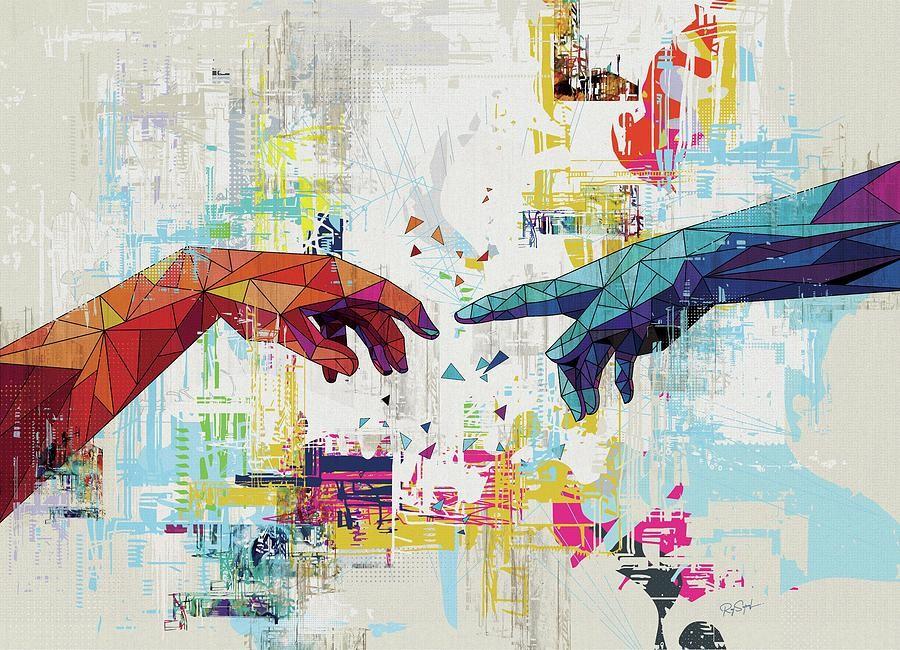Vladimir Oane's Key Ideas from The WEIRDest People in the World
by Joseph Henrich
Ideas, facts & insights covering these topics:
8 ideas
·5.32K reads
33
6
Explore the World's Best Ideas
Join today and uncover 100+ curated journeys from 50+ topics. Unlock access to our mobile app with extensive features.
WEIRD Societies
Joseph Henrich argues that people from Western, Educated, Industrialized, Rich & Democratic (WEIRD) societies have distinct psychological characteristics compared to the rest of the world. He traces these to unique cultural features and historical developments that shaped WEIRD societies over time.
The premise is that culture matters a lot. It affects us biologically. It can and does alter our brains, hormones, and anatomy, along with our perceptions, motivations, personalities, emotions, and many other aspects of our minds.
76
1.1K reads
The Impact of Literacy on Individuals and Society
The ability to read and write not only leads to cultural progress but also changes our biology and psychology. Literate societies have thicker corpus callosa and have difficulty recognizing faces. This is because reading (a skill acquired later in human history) requires using areas of the brain that oral communication does not.
The spread of literacy can be traced back to the rise of Protestantism, which emphasized the importance of individuals engaging with divine words directly. Hence, reading became essential in Western societies, while oral communication ruled the rest of the world.
77
783 reads
Who Are You?
Try completing this sentence: I am ___.
If you are WEIRD, you probably answered with words like “curious” or “passionate”, “a scientist,” “a surgeon” etc ...
You were probably less inclined to respond with things like “Josh’s dad” or “Maya’s mom,” even though those are equally true.
This focus on personal attributes over personal relationships & inherited social roles is a distinctive feature of WEIRD psychology, but one that sets them apart from the rest of the world. Because most people think of themselves in terms of their social context rather than focusing solely on individual traits.
79
732 reads
WEIRD People vs the World
WEIRD people are the exception. Key areas of differences:
- Collectivism vs. Individualism: WEIRD societies emphasize individual goals & achievements, whereas the rest prioritize group identity: family, tribe.
- High vs. Low Trust in Strangers: WEIRD societies show higher levels of trust in strangers compared to the global average.
- Formal Rules vs. Informal Norms: WEIRD societies often rely on laws to govern behavior. In contrast to traditions.
- Openness to Novelty vs. Traditionalism: WEIRD populations tend to be more open to new ideas over preserving traditions.
78
679 reads
Historical Factors for WEIRD Societies
It took hundreds of years for the West to develop its distinct culture.
- The Rise of Monogamous Nuclear Families: The Catholic Church's promotion of independent families weakened kinship networks and fostered individualism.
- Impersonal Markets and Urbanization: The growth of market economies and urban centers with diverse populations encouraged cooperation and exchange.
- Rise of Voluntary Associations: Guilds, universities, and other self-governing groups created opportunities for people with shared interests to collaborate.
71
569 reads
WEIRD Individuals
Weird people are psychologically peculiar. Highly individualistic, self-obsessed, control-oriented, nonconformist, and analytical. They focus on themselves - over their social roles.
- They aim to be “themselves” across contexts and see inconsistencies in others as hypocrisy.
- They are less willing to conform to others when this conflicts with their own beliefs.
- They see themselves as unique beings, not as nodes in a social network.
- When reasoning, they tend to look for universal categories and rules with which to organize the world.
- Through self-regulation, they can defer gratification
74
502 reads
Shame vs Guilt
WEIRD people are racked by guilt as they fail to live up to their culturally inspired, self-imposed, standards.
🤔 In most non-WEIRD societies, shame—not guilt—dominates people’s lives.
➡️ People experience shame when they, their relatives, or even their friends fail to live up to the standards imposed on them by their communities.
- Non-WEIRD populations “lose face” when their daughter loves someone outside the social network.
- WEIRD people might feel guilty for taking a nap instead of hitting the gym.
💡 Guilt is based on our own standards whereas shame stems from societal standards.
86
465 reads
WEIRD Innovation
Innovation is driven by the recombination of ideas, insights, and technologies, along with a healthy dose of serendipity and unintended consequences. As a result, any institutions, norms, beliefs, or psychological inclinations that increase the flow of ideas among diverse minds or open up more opportunities for fortune to show us the way will energize innovation.
It is a form of cumulative cultural evolution, which is fundamentally a social and cultural process that turns societies into collective brains.
74
488 reads
IDEAS CURATED BY
Life-long learner. Passionate about leadership, entrepreneurship, philosophy, Buddhism & SF. Founder @deepstash.
CURATOR'S NOTE
WEIRD means Western, Educated, Industrialized, Rich, and Democratic. An acronym to describe the characteristics of modern civilisations.
“
Discover Key Ideas from Books on Similar Topics
8 ideas
Cosmos
Carl Sagan
16 ideas
How to Change Your Mind
Michael Pollan
6 ideas
Meet Sonic!
Penguin Young Readers Licenses
Read & Learn
20x Faster
without
deepstash
with
deepstash
with
deepstash
Personalized microlearning
—
100+ Learning Journeys
—
Access to 200,000+ ideas
—
Access to the mobile app
—
Unlimited idea saving
—
—
Unlimited history
—
—
Unlimited listening to ideas
—
—
Downloading & offline access
—
—
Supercharge your mind with one idea per day
Enter your email and spend 1 minute every day to learn something new.
I agree to receive email updates
